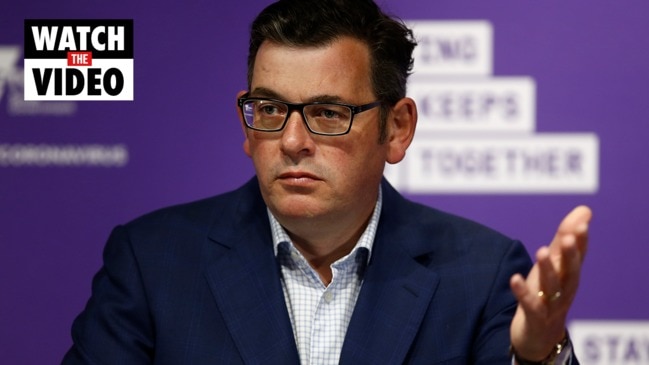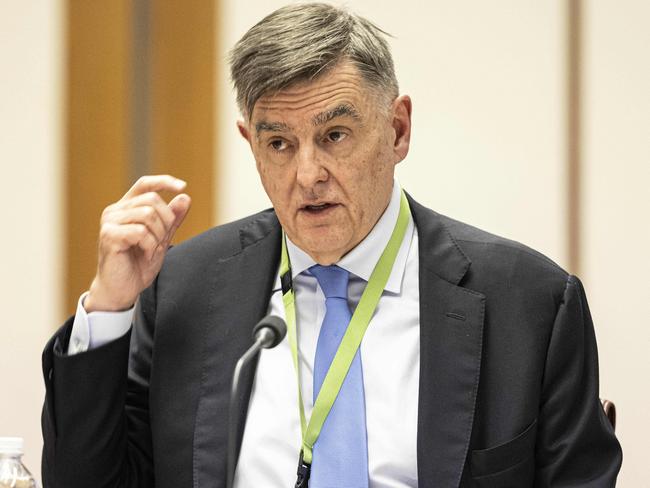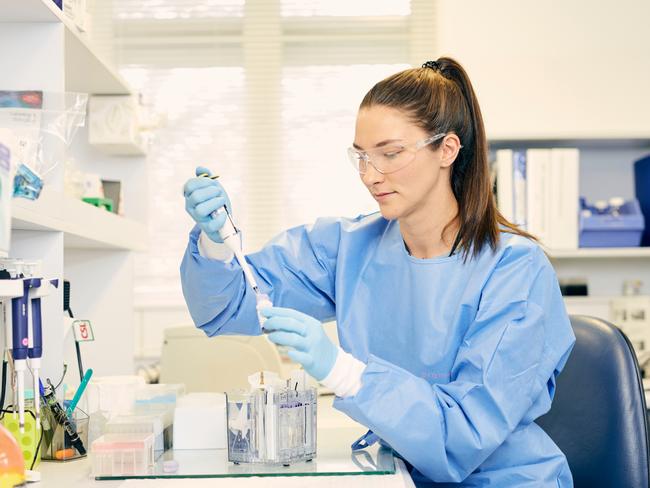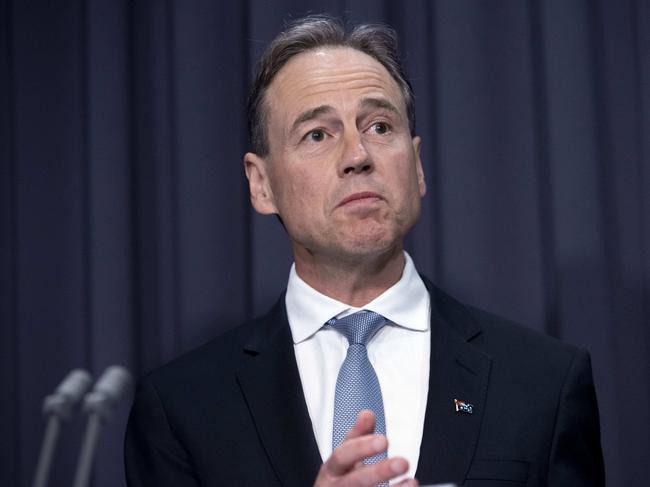Australians kept in the dark on rollout of a COVID vaccine
Crucial information on how a COVID-19 vaccine will be distributed in Australia is being withheld from the public.

Coronavirus
Don't miss out on the headlines from Coronavirus. Followed categories will be added to My News.
The public is being denied crucial information on how a COVID-19 vaccine will be rolled out including information on who will get it first, a Senate Estimates committee has heard.
South Australian Senator Rex Patrick has revealed he was sent 42 blank pages in response to a freedom of information request on how the vaccine rollout would proceed.
The Department of Health told him the vaccine rollout was secret because it was a matter of national security, he told Senate Estimates.
“Forty two pages of 51 were redacted blank, blank,” Senator Patrick told the hearing.
“This is how you’re treating the Australian public, they’re not allowed to know what a strategy is in relation to deployment of a vaccine, something that is fundamental to their health,” he said.
Health Department chief Professor Brendan Murphy said Australia has contracts for supply of the Oxford/Astra Zeneca vaccine and a University Queensland vaccine and if they were successful 80 million doses would be delivered by the end of next year.
The department currently had a series of committees working on the detail of that rollout, he said.

News Corp understands frontline health and other essential workers will be the first to receive any successful vaccine.
The government’s Australian Technical Advisory Group on Immunisation (ATAGI) is currently determining which workers fit the definition of frontline and essential workers.
Science Minister Karen Andrews revealed yesterday Australia currently does not have the technology to manufacture some types of coronavirus vaccines- MRNA vaccines.
If these types of vaccines were the only ones found to work it could delay the rollout of a COVID-19 vaccine in Australia.
Australia’s vaccine manufacturer CSL can manufacture protein based vaccines like the Oxford and University of Queensland vaccines but not MRNA vaccines.
Professor Murphy said the government was “exploring actively whether there’s any potential for a company, not necessarily CSL, to be involved in supporting that manufacturer but that’s a very early phase at the moment,” he said.
AUSTRALIAN COULD GET DIFFERENT VACCINES
Australians could receive different types of coronavirus vaccines if multiple trials prove successful but sufficient doses are unavailable.
Department of Health Secretary Brendan Murphy told Senate estimates the preference was to secure enough of one vaccine but it may not be possible.
“If one particular vaccine that we have supply, adequate supply turns out to be the most effective we would probably stick with one but it is quite possible that we might end up with more than one,” Dr Murphy said.
“We just don’t know and that’s why we are diversifying.”
Australia has entered into three separate agreements for the supply of COVID-19 vaccines, but there is no guarantee any will be proven safe and effective.
Australia has invested an initial $123.2 million into the international COVAX Facility, which will give Australia the opportunity to purchase doses for up to half the population if one of the vaccines under the scheme proves successful.
There are also deals with the University of Queensland and CSL trial and the University of Oxford and AstraZeneca trial.

It comes as Industry, science and Technology Minister Karen Andrews said she expected Australian biotech company CSL would need nine to 12 months to develop the capability to make a non-protein based vaccine based on mRNA, or messenger ribonucleic acid.
Traditional vaccines introduce proteins to the body to prompt the immune system into responding, but an mRNA vaccine – such as the one being developed by US company Moderna – uses molecules to instruct cells how to build a defence to a disease.
It therefore requires different technology to be manufactured.
Ms Andrews said CSL would be able to start making a protein-based vaccine immediately if it is found to be safe and effective, but “significant work” would be required if it was another type based on mRNA.
“I would hope that we would be able to do it in about the nine-month to 12-month time frame,” she told the ABC.
“I think we need to be really conscious that with a vaccine, there are a lot of variables in there … so we are trying to prepare across a wide range.”
Ms Andrews said the government would help CSL complete technical upgrades, with some work already started for the expected delivery of a protein-based vaccine such as the AstraZeneca/Oxford University option.

Health Minister Greg Hunt said the government’s advice remained that if the AstraZeneca vaccine proves safe and effective it would be available to some Australians by the first quarter of 2021.
“There’s no surprise here that the earliest patients will, on the advice of the medical expert group, be those primarily within the health sector,” he said.
“We have a million health workers in Australia, and if the indication is approved for this purpose, obviously for the most frail elderly.”
Mr Hunt said the University of Queensland’s “molecular clamp” vaccine was also progressing.
“(The) Prime Minister visited and was just amazed at the ingenuity of Australia’s researchers CSL is aiming to make sure that vaccine is available during the course of next year, about the middle of the year so we have a pipeline of vaccines.”
Mr Hunt said Australia’s participation in the Codex facility would mean the nation received up to half a million units of any successful vaccines developed globally.

It comes as US expert Dr Anthony Fauci said it should be known by the end of November or early December if a vaccine was safe and effective.
“We will know whether a vaccine is safe and effective by the end of November, the beginning of December,” Dr Fauci, America’s leading expert in infectious diseases, said during an appearance on the BBC’s Andrew Marr Show.
“The question is, once you have a safe and effective vaccine, or more than one, how can you get it to the people who need it as quickly as possible?
“The amount of doses that will be available in December will not certainly be enough to vaccinate everybody. You’ll have to wait several months into 2021.”
Dr Fauci was responding to a question on whether there was truth in US President Donald Trump's claim that a COVID-19 vaccine would be ready by the end of the year.
He also added health workers and people with medical issues would be the first to get the vaccine.
“That could start by the end of this year, the beginning of January, February, March of next year,” he added.
Originally published as Australians kept in the dark on rollout of a COVID vaccine
